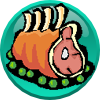Traditions
READING
Matthew 2
Matthew 15
Galatians 4
If you want to find out if you’re a slave to a tradition, try not doing it and see how you go.
I have to be up front and say right from the beginning, that when it comes to the church, tradition for the sake of tradition annoys me like nothing else. I like some traditions. I really like Thanksgiving for example. And when my kids were growing up I really liked the annual “Baba’s Challenge” where I would set my kids 10 tasks to achieve within the year. Tasks which would stretch them a bit and develop their character. But in church we need to make sure that any tradition that we adopt is still consistent with the truth.
Take the whole Christmas/nativity thing for example.
The tradition is that three wise men, (aka kings), came to visit baby Yeshua and his parents in a manger. Sadly that’s not what the Bible says.
Nowhere does it mention three of them. But it is plural, so at least two. The word it uses to describe them “magos” is usually used to refer to priests of Zoroaster, and elsewhere in the New Testament it is translated as sorcerer. (Elymas and Simon were both sorcerers in the book of Acts). But we want to make it nicer, so we call them “wise men”. We don’t want to say that three magicians or sorcerers came to visit Yeshua.
When they saw Yeshua they bowed down to him. The Greek word used to describe him was “paidion” which means a little child. It was not “theladzo”, (meaning newborn baby), or “nepios”, (infant). Yeshua was no longer a baby when they came to visit.
After their visit Herod killed all the children 2 years and under, (based on when they told him they had first seen the star). It seems pretty likely that by the time they visited - Yeshua was about 2 years old. And if that is correct then it also seems pretty unlikely that they were still living in the manger. (But I guess they could have been).
So two or more magicians from the east came to visit Yeshua when he was about two years old.
And the whole Christmas thing anyway. It’s incredibly unlikely that Yeshua was born in December. There is no instruction to celebrate Christmas in the Bible. In fact, as far as we can tell it was started hundreds of years later by the catholics because everyone was running off to have fun at Saturnalia, (the end of year celebration to the god Saturn), and the church adopted Christmas as a way of bringing them back.
Why, for example do we give gifts to each other?
In the Bible story the gifts were all given to Yeshua. Why don’t we all give a gift to Yeshua every Christmas?
Would it surprise you to hear that part of Saturnalia was giving gifts to each other?
Quite often I hear the argument that if we didn’t have Christmas and Easter then non-Christians would never come to church. So what? Are they supposed to? I thought the church was supposed to be going to them?
You might think that this is all no big deal. But I think it is. From what I see, we have accepted the tradition instead of the truth and it damages our perceptions. And it damages the world’s perceptions about Yeshua.
In fact there was never even anyone called “Jesus” in the Bible! Seriously. Jesus is a made up Latin name, created by the catholic church to differentiate him from Joshua.
The person we call Jesus was really called Joshua. Yeshua if you want to really transliterate it from Aramaic. Yeshua means “God saves”. In Greek they transliterated that name as Iesous. And in Acts 7 and Hebrews 4 you can find this name, but it is talking about the Old Testament Yeshua who led the Israelites into the promised land. (Which interestingly is kind of what the New Testament Yeshua did for us! hmmm.)
So, to avoid confusion the catholics renamed Yeshua, (the one who saved us), to Iesus. And then later on English changed to start words starting with I to be spelled with J, but pronounced Y. So the name became Jesus.
Again, it’s now a tradition and again you might think it’s no big deal. But I still think it is. God didn’t call him Jesus. God called him Yeshua. Why? Was he trying to tell us something?
And again we have accepted the tradition instead of the truth.
Now in the Bible there were some people who really valued tradition. The Pharisees.
In Matthew 15 you can read how Yeshua told them off because they broke the commands of God for the sake of their traditions! God had commanded them to honour their parents. But their tradition said that if you have given money to the temple then you don’t need to give any to your parents.
They were also obsessed with washing their hands, and their bowls in a special ceremony before they eat. But these were just empty ceremonies and they weren’t really washing anything at all. Yeshua said it straight... “how come you wash the outside of the bowl and not the inside?” Seriously, when you think about it that is completely the wrong way around. If the inside of the bowl is clean you don’t even really need to wash the outside. In Mark’s account of this story we hear that they had many things like this.
Paulus says that these traditions which are handed down take you captive through hollow and deceptive philosophy. And that most of them actually come from the world.
The Pharisees held the traditions of men above the commands of God. They were slaves to their traditions. And in many ways this is what blocked them from recognising Yeshua as the true son of God.
Do we put tradition above God? Are we slaves to tradition? What truth is it blocking us from seeing?
(Actually if you want to find out if you’re a slave to a tradition, try not doing it and see how you go.
I find that most Christians can’t eat a meal without praying first. Try it. See if you’re a slave.
And if you’re really worried, then give thanks afterwards. Even in the tradition there is no reason it has to be first.)
In Galatians Paulus is lamenting that people are observing special days, and months, and years. He worries that he has wasted his time on them, and that they will be enslaved again to those things. Now he is mostly concerned there about Jewish festivals, but the same arguments apply.
At best traditions are just shadows of the truth, but in most cases they are not even that.
Christianity should go beyond traditions. We have the truth. We have the spirit of God.
We really don’t need to be continuing any traditions which are working against that.
Why do we need to celebrate Christmas? or Easter? Why do we need to have some little token of prayer before we eat?
What other traditions do we have? What are they blocking?
What about you, and your church? What traditions are you following?
Please, at least examine your traditions and see if they are based on truth.












